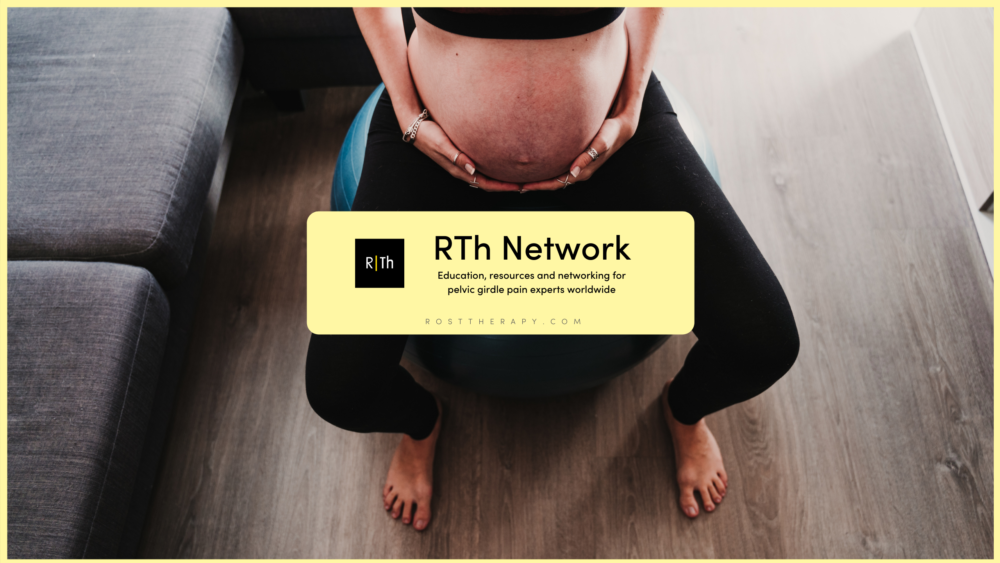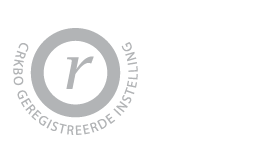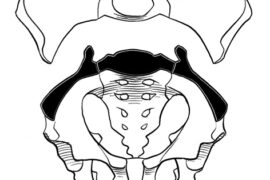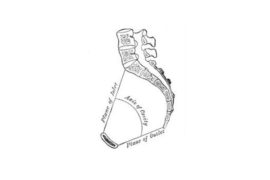RTh Method
What is the Rost Therapy™ method?
The Rost Therapy™ method is an integral therapeutic approach to the management of pelvic girdle pain & coccydynia. It was created by Cecile Röst PT MSc in the 90s, and further developed in cooperation with Susannah Britnell PT later on. The method focuses on three parts:
- An assessment which identifies asymmetry and/or muscle imbalance of the pelvic girdle and unhelpful movement patterns and postures.
- A treatment that includes therapist hands-on techniques to improve pelvic girdle symmetry and muscle support and alleviate pain,
- A home exercise program to properly balance pelvic girdle joints and muscle patterns. Postural and movement advice for daily activities is an important part of the program. The program is simple, which makes adherence high.
The method offers guidance and solutions for every step in the therapeutic process: assessment, treatment and patient self-care. Adapting ADLs and fostering self efficacy are key strategies of RTh™.
A small number of therapy sessions are needed for treatment and to learn the program. This active approach gives women back control of their symptoms and function.
Evidence on the effects of Rost Therapy™
Rost Therapy™ (RTh) is an effective treatment program with quick and lasting results, with effectiveness tested in a large follow-up study (Röst et al 2006).
Within a few weeks, women with PGP using RTh™ could function normally, and return to work and exercise. In fact, 98% of 430 women treated with RTh™ in pregnancy reported benefit from the treatment (Rost et al 2006).
Conventional treatment VS Rost Therapy™
With conventional treatment, 35% of women with PGP were symptom free within a month after birth, but 7 to 18% had serious complaints up to eighteen months after delivery (Ostgaard et al. 1991).
However, less than 2% (n=7) of women treated with RTh™ (Röst et al. 2006) during pregnancy had serious complaints eighteen months after delivery, of whom five were at the end stage of a next pregnancy or had recently delivered.
The sixth woman experienced postnatal depression, and the seventh had stopped the treatment and home exercises after two sessions.
RTh courses
Training at the Rost Therapy™ Institute
The RTh Institute for pelvic girdle pain and coccydynia educates therapists in the assessment and treatment of pelvic pain since the 90s. We have trained more than 4.000 professionals ever since and offer 5 blended learning courses (2 in the international site) in the integral assessment and treatment of PGP and tailbone pain.
How the RTh Institute started
In the early 2000s, word of mouth kept bringing therapists to our Leiden (Netherlands) practice searching for someone who could teach the exercises that were such a life saver for many pelvic girdle pain (PGP) patients. The exercises that Cecile Rost developed early on to successfully treat her own PGP.
We started then our Pelvic Girdle Pain course (with another name back then) as a practical 2-day physiotherapy course, and the RTh Institute was born.
Flash forward 20 years, and the Institute currently offers 5 full blended learning courses in the Netherlands and 2 international courses (Pelvic Girdle Pain and Coccydynia) in UK, Switzerland, Belgium and Canada.
Our students come from all over the world to get specialized in PGP. We have trained not only physiotherapists, but chiropractors, ostepaths, midwives, movement instructors and even doctors in the assessment and treatment of PGP.
More than 700 of them can be found on our Find a Therapist database on this website.
Our course system
Our current courses follow a flexible learning system: you can choose to take the online course (followed by an online exam or practical 1 day certification), or a practical live certification course. Would you like to learn with us?:
- Join our online courses in RTh, Bia Formations & Embodia
- Register for a live practical course
Our practical live course agenda is up and running again! We have scheduled courses in Vancouver and Toronto, and are scheduling more in other locations. Meanwhile, our online Pelvic Girdle Pain course has also been fully updated to offer theoretical as well as practical content for all of you who can’t join us for a practical course.
RTh Network
The RTh wordlwide network
The RTh network strives to connect pelvic girdle pain and coccydynia professionals via the RTh therapists database. Connect with patients and pelvic pain specialists in this worldwide network of schooled therapists.
Would you like to register in our database so patients and colleagues can find you? Join our PGP and tailbone pain courses.
Why a network for pelvic girdle pain and coccydynia?
Pelvic girdle pain (PGP) affects many pregnant and postpartum women. It is a condition that greatly impacts function and quality of life.
- PGP is an under-recognized and under-treated problem. In fact, in one study, 71% of the pregnant women with self-reported lumbo-pelvic pain told their health care professionals about their pain, but only 25% received any type of treatment for their condition (Pierce 2012).
- Many women are told that back, pubic and/or hip pain is just a normal part of pregnancy, which will most likely improve after delivery. But the reality is that PGP can be significantly improved in pregnancy and postpartum, allowing pregnant women to function well and enjoy their pregnancies.
The need for better informed professionals
We need better trained professionals in pelvic girdle pain and coccydynia. We need therapists that effectively encourage our patients to take charge of their health. Therapists who know that PGP is treatable, not a curse to endure for 9 months or even years after delivery. Professionals who know that persistent PGP can be modified.
Patients deserve a different approach to PGP and coccydynia. One that actually helps. Our goal with the RTh network is to assist patients to find the help they need, and to provide information to health professionals on where to find PGP and coccydynia specialists.

Are you a PGP or coccydynia specialist? Then send us an e-mail to info@rosttherapy.nl with your credentials to be listed in the RTh therapists network. Have you trained at the RTh Institute? Then you are automatically listed on the RTh database.











